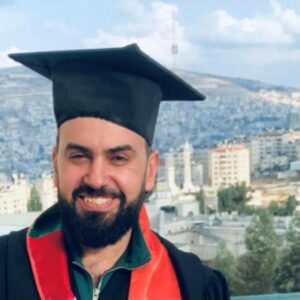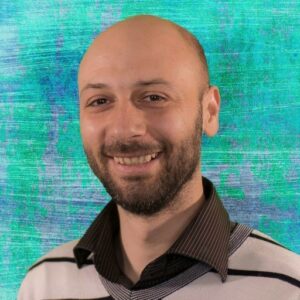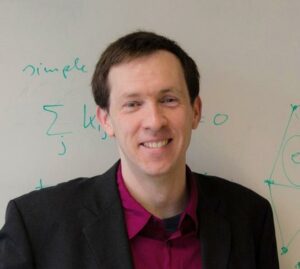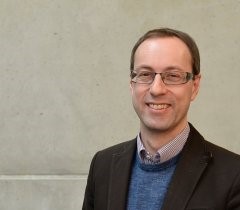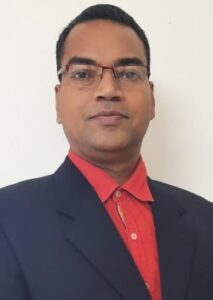
Veranstaltungen Suche und Ansichten, Navigation
Juni 2022
East-west oriented photovoltaic power systems: model, benefits and technical evaluation
Priv.Doz. Tamer Khatib, MSc. PhD. Abstract: East-west oriented photovoltaic power system is a new trend in orienting photovoltaic system. This lecture presents an evaluation of east–west oriented photovoltaic power system. A comparison between east–west oriented photovoltaic system and south oriented photovoltaic system in terms of cost of energy and technical requirement is conducted is presented in this lecture. In addition to that, the benefits of using east–west oriented photovoltaic system are discussed in this paper. By this lecture the following…
Erfahren Sie mehr »The Computing Continuum: Beyond the Cloud Data Centers
Dr. Dragi Kimovski, MSc Abstract: The advent of fog and edge computing has prompted predictions that they will take over the traditional cloud for information processing and knowledge extraction in Internet of Things (IoT) systems. Notwithstanding the fact that fog and edge computing have undoubtedly large potential, these predictions are probably oversimplified and wrongly portray the relations between cloud, fog and edge computing. Concretely, fog and edge computing have been introduced as an extension of the cloud services towards the…
Erfahren Sie mehr »Juli 2022
Tipping Points and Inference in Complex Systems
Abstract: The dynamics of networks enables the function of a variety of systems we rely on every day, from gene regulation and metabolism in the cell to the distribution of electric power and communication of information. Understanding, steering and predicting the function of interacting nonlinear dynamical systems, in particular if they are externally driven out of equilibrium, relies on obtaining and evaluating suitable models, posing at least two major challenges. First, how can we extract key structural system features of…
Erfahren Sie mehr »Towards a Data-driven Identification of Teaching-Patterns
Abstract: When it comes to integrating digital technologies into the classroom in higher education, many teachers face similar challenges. Nevertheless, it is difficult for teachers to share experiences because it is usually not possible to transfer successful teaching scenarios directly from one area to another, as subject-specific characteristics make it difficult to reuse them. To address this problem, instructional scenarios can be described as patterns that have been used previously in educational contexts. Patterns can capture proven teaching strategies and…
Erfahren Sie mehr »Computer Vision techniques for real estate rating
Abstract: Computer vision and AI methods are percolating many branches nowadays. Also in the research field of real estate rating computer vision and AI methods have lead to very interesting innovations. In this research talk, real estate classification by AI-enabled computer vision techniques is discussed. The talk will give an overview of recent research efforts in the field and focus on latest findings of our research group. This consists of age or heating demand prediction of real estates by photographs…
Erfahren Sie mehr »Edge Intelligence and Protocols for IoT Applications
Abstract: IoT-enabled applications increase tremendously in various sectors, such as transportation, healthcare, education, agriculture, and so forth. These applications sense properties using sensors, perform intelligence, and apply the findings using actuators. Instead of submitting sensor data directly to the cloud, intelligence could be performed with the inclusion of several edge/fog nodes. This improves the privacy and computation time of applications. This talk will provide insights on edge intelligence techniques for such IoT-enabled applications. In addition, a few protocols that are…
Erfahren Sie mehr »November 2022
Engineering Serverless Workflow Applications in Federated FaaS
November 29, 2022 | 10:00 am (CET) | Room: S.2.69 | | Alpen-Adria-Universität Klagenfurt Ass. Prof. Sashko Ristov | Computer Science Department, University of Innsbruck Abstract: Function-as-a-Service (FaaS) is the latest paradigm of cloud computing in which developers deploy their codes as serverless functions, while the entire underlying platform and infrastructure is completely managed by cloud providers. Each cloud provider offers a huge set of cloud services and many libraries to simplify development and deployment, but only inside their…
Erfahren Sie mehr »März 2023
Distributed systems in the Post-Moore era
Tuesday, March 14, 2023 | 02:00 pm (CET) | Room: HS 8 | | Alpen-Adria-Universität Klagenfurt Dr. Vincenzo De Maio | Vienna University of Technology Abstract: In recent years, we have experienced an exponential growth in the amount of data generated by IoT devices. Data have to be processed strict low latency constraints, that cannot be addressed by conventional computing paradigm and architectures. On top of this, if we consider that we recently hit the limit codified by the Moore’s…
Erfahren Sie mehr »Mai 2023
Life Cycle Assessments and Ecodesign to reduce CO2 Footprints
Tuesday, May 16, 2023 | 01:00 pm (CET) | Room: Z.1.09 | | Alpen-Adria-Universität Klagenfurt Dr. Michael Has | University of Grenoble Abstract: The impact of climate change to biosphere and the human civilization living therein are widely discussed as is the need to reduce the consumption of energy and materials – measured in footprints. Despite of that the means on how to reduce footprints and the difficulties going along with that are lesser discussed. The assessment of CO2 Footprints…
Erfahren Sie mehr »Juni 2023
Beyond NP: Reasoning with Quantified Boolean Formulas
Friday, June 16, 2023 | 12:30 pm (CET) | Room: S.2.69 | Alpen-Adria Universität Klagenfurt Univ.-Prof.in Dr.in Martina Seidl | Institute for Symbolic Artificial Intelligence | JKU Linz Abstract: As the prototypical NP-complete problem SAT, the decision problem of propositional logic, is considered to be hard. Despite this hardness, SAT is very successfully applied in many practical domains, because very powerful reasoning techniques are available. There are, however, problems that cannot be efficiently encoded in SAT. For such problems, formalisms…
Erfahren Sie mehr »
